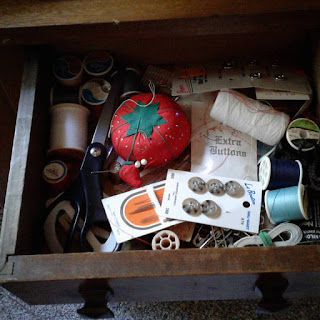There is the mother bird and her baby finally leaving the loosely knitted nest they made in my son's flowering lemon tree. We watched her and her mate build it, weather the desert winds, wondered if a baby or two were beneath her wings. Then, just a few days ago, s/he popped up when mama had flown for food. And not too long after, the baby bird's trial flight agitated our son's kitty, Basil. A young one herself, this new world of windows, trees, flowers and birds are enchantment to an apartment-raised kitten.
So the baby bird flew up and down and Basil followed its movements around the patio, her golden eyes widened in anticipation. But the drama from the nest is gone now. Instead, gutters are removed and painters arrive to restore our son's new home to a place that demonstrates new and first ownership pride. For Basil, the tradesmen, who come and go, are not the kind of movement she likes, so under the bed she flees. Only to be coaxed out by a treat or two. Then back into the dark again, where all is safe.
I share her sentiment to a certain degree. While I have breakfast of bananas and peanut butter on toast, sip my tea latte and close with a mixed berry nut yogurt, I read the news, particularly the comics. I write, long hand, in my Higher Power journal, and then my daily mini collage ritual. I ask for guidance from my HP and state my intentions to be "thriving today." Then, I'd like to be like Basil and, if there are no birds to watch (fortunately, since I feed them daily, they often are still fluttering outside), I'd like to return to the safety of the bedroom where it's still and more shaded that the rest of the house.
But I don't retreat. I stretch, and shower, take a walk around the neighborhood and chat it up with neighbors and yard workers. I think I know what's ahead in the day, but the unexpected may occur and so adaptability is necessary. Limited political news is a regular distraction and today, I wear "red for ed" as our Arizona teachers prepare for a strike. Walking out or walking in on issues is a choice I make every day. To stay in the nest or to fly.




